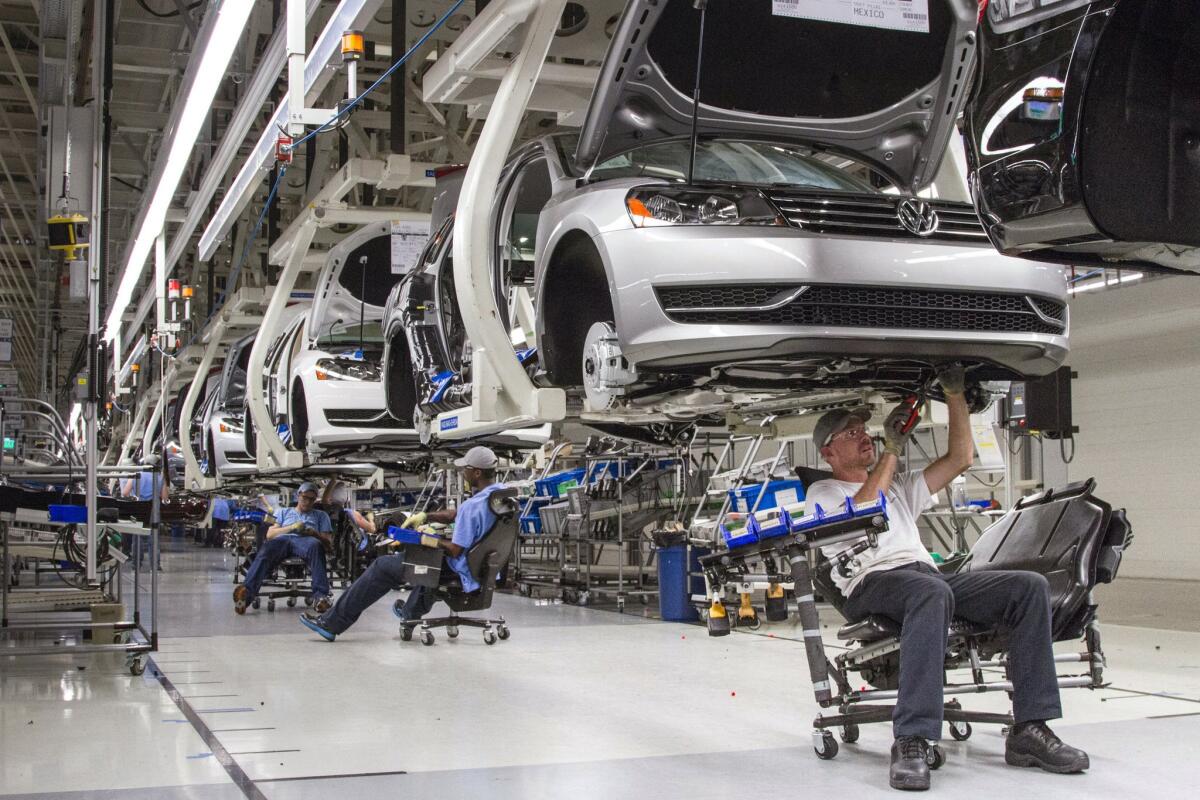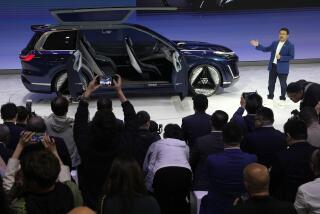VW emissions rigging will drive auto industry manufacturing costs higher

FILE - In this July 12, 2013, file photo, employees at the Volkswagen plant in Chattanooga, Tenn., work on the assembly of a Passat sedan. While the full effect on demand for Volkswagen’s non-diesel vehicles remains to be seen, some Tennessee officials fear for job prospects at the plant that currently employs 2,400, where the average hourly wage is about $21 and perks include reduced-cost leases on VW vehicles with free insurance coverage. (AP Photo/Erik Schelzig, File)
- Share via
The Volkswagen emissions test-rigging scandal is going to cost all consumers and manufacturers as the industry is forced to spend more on pollution-control systems.
That’s the assessment of analysts from Fitch Ratings, the corporate credit rating firm, and Wall Street investment bank Morgan Stanley.
Expect regulators to crack down on all automakers, putting their vehicles under greater scrutiny, tightening testing regimes and forsaking laboratory testing for more complex on-the-road emissions measurements.
“The whole transportation sector could be affected if this emission test crisis fundamentally affects consumers and regulators’ attitude toward cars, driving and pollution,” said Emmanuel Bulle, Fitch’s automotive analyst.
In recent meetings with Detroit auto industry executives, Morgan Stanley analysts heard how the expected regulatory response will lead to more regulatory supervision, technical challenges to control pollution and cost increases.
“Either the car companies pay or the consumers pay. Given the highly competitive nature of the auto industry, we strongly suspect the consumer will get the better end of the deal,” said Adam Jonas, a Morgan Stanley analyst.
VW embedded an algorithm in its diesel vehicles to evade U.S. anti-pollution rules. The so-called “defeat device” adjusted engine performance to hide emissions U.S. regulatory tests.
Jonas estimates that stricter testing and enforcement will add about $100 to the cost of building a vehicle, enough to slash the global industry’s profits by about 10% unless consumers take on some that expense.
Both Jonas and Bulle believe the scandal could have another side effect, speeding the growth of vehicles with alternative powertrains, including fuel cells, electric and hybrid engines.
The outfall from Volkswagen’s emissions rigging “may help to call into question more than a century of internal combustion engine powertrain dominance,” Jonas said.
Follow me on Twitter (@LATimesJerry), Facebook and Google+.







